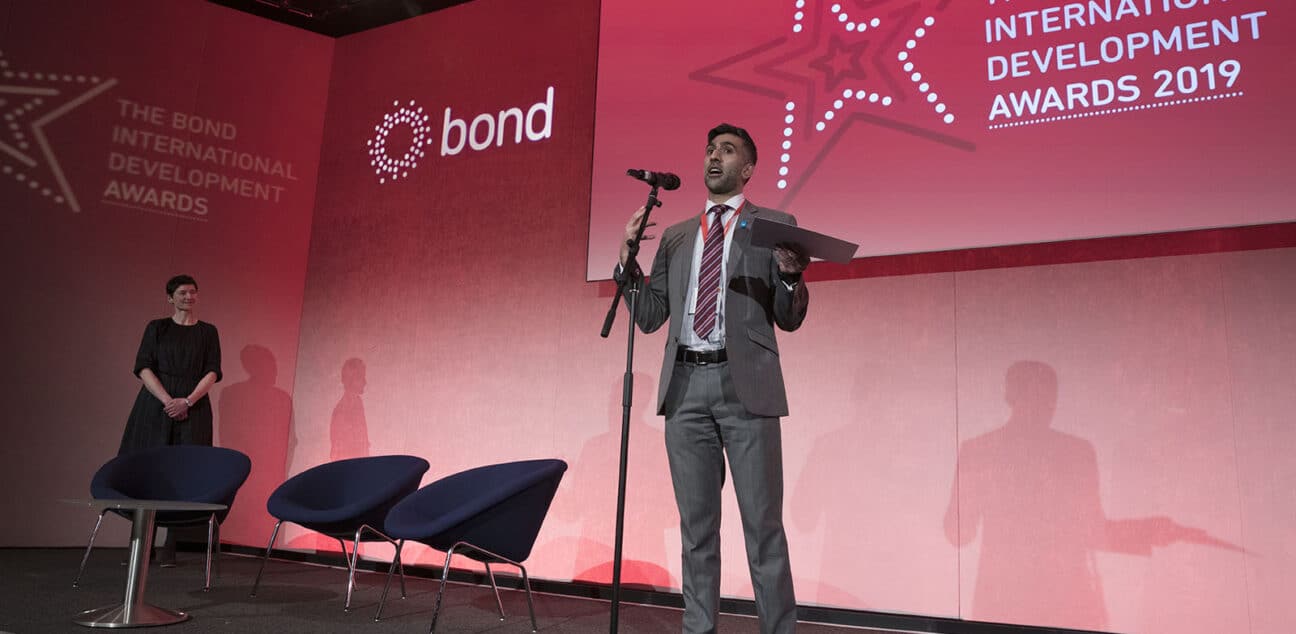Bond Innovation Award – and the winner is. . .
The Innovation Award showcases organisations or initiatives that take novel approaches to navigate a complex and changing external environment.
Congratulations to The British Asian Trust on winning this prestigious award.
Read more about the winner below. You can also see the shortlist and the longlist of nominations. Click on the organisation to see what project they have submitted for this award.
Don’t forget to join in the conversation on social media using the #BondAwards tag.
Winner – The British Asian Trust
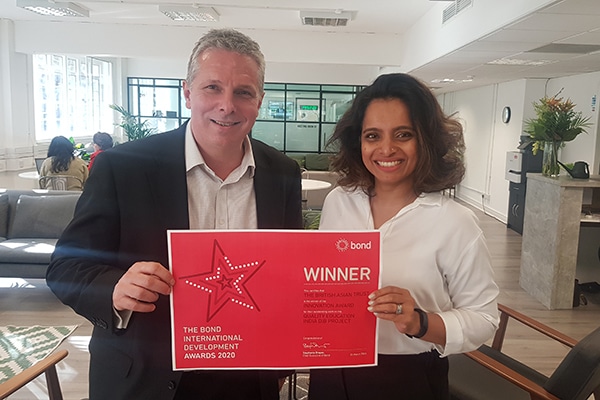
We are absolutely delighted to have won this Bond award for Innovation. We were delighted to work closely with a number of other organisations, most especially the UBS Optimus Foundation and the Michael and Susan Dell Foundation, on this really exciting Development Impact Bond, which will not only improve learning for 200,000 children in India, but could also have a substantial impact on the way both philanthropy and development work. It is such an honour to be recognised by Bond for this.
The British Asian Trust
The Quality Education India Development Impact Bond is a pioneering initiative with the potential to transform the way we fund and deliver development programmes. The British Asian Trust, Michael and Susan Dell Foundation (MSDF) and UBS Optimus Foundation (UBSOF) convened 20 partners from across the private, public and third sectors to improve learning outcomes for 200,000 primary school children in India.
Project objectives
- Improve learning outcomes for 200,000 children in India.
- Impact the way the international community – governments, private philanthropists, and corporations – finance development initiatives.
- Drive innovation in the global education sector by making the role of data and outcomes measurement indispensable.
How have people benefited?
In the first year of the DIB, 109,111 primary school children in 600 schools in Ahmedabad, Surat and Delhi were directly involved in one of four educational interventions supported by the the project. On average, these students acquired a whole extra year’s worth of learning gains compared to similar children who were not involved. The programme is now expanding to Mumbai and Lucknow and will reach 200,000 children in total. The education interventions take place in a mixture of poorly resourced government schools and NGO schools operating in urban slums.
What examples are there of impact?
- Children benefiting from the DIB are learning more than twice as fast as other children. The DIB hasn’t just achieved its targets in year one, it’s done almost three times better than expected in terms of its impact on children’s learning.
- Over 100,000 children have benefited from participating in the DIB in year one, and tens of thousands more children will benefit each year. These results are measured by an independent external evaluation agency, Gray Matters India, which compared test scores of students involved in the DIB with control students.
- The consortium raised $11m from a diverse set of partners to make this the largest education DIB in the world, and the first DIB to include India-based funders.
- A data-driven approach by the NGO implementation partners was one of the key drivers of success in the first year.
What makes this project innovative?
DIBs are an innovative financial model designed to incentivise better development outcomes. Ths consortium’s aim was to build on a number of pilot DIBs in low and middle income countries by testing the DIB model on a scale appropriate to the size of the development challenge in South Asia. The result is that the Quality Education DIB is the largest education DIB in the world, and the first education DIB to support numerous NGO implementing partners.
This is a key innovation because the DIB will enable the efficacy testing for different interventions and compare their cost relative to their impact on learning outcomes. The goal is to use this data to encourage Indian state governments to fund Phase Two of the DIB, doubling both its size and longevity. It is also the first DIB to involve an Indian outcome funder, another important aspect in securing long-term local adoption.
Innovation Award shortlist
Amref Health Africa UK – mVacciNation
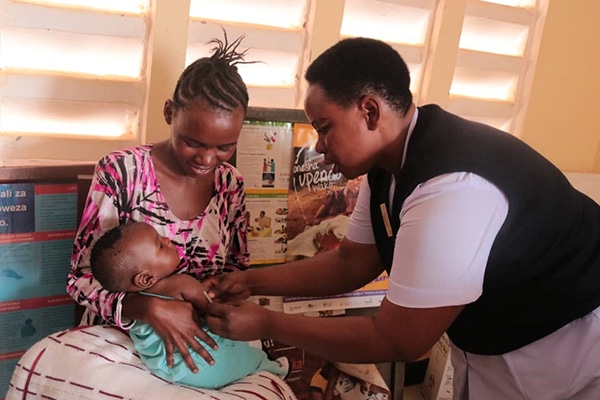
mVacciNation is an innovative smartphone app aiming to reduce the number of children dying from vaccine-preventable diseases in remote, hard-to-reach areas. It allows health workers to record every child they vaccinate, monitor temperatures and track stock levels. The app sends caregivers SMS reminders of upcoming vaccination appointments, improving attendance rates.
Project objectives
- Developing a novel, highly innovative user-friendly and free app called mVacciNation to address the inconsistencies in the supply, demand and the data management of vaccines.
- Making sure the data is easily and freely available.
- To train at least 100 healthcare workers to use the system and promote the platform to be used by the Ministry of Health in Tanzanian.
How have people benefited?
Overall, more than 430,000 children under five have been captured in the mVacciNation system at the facility level. This translates into over 98% of children under-five now being fully vaccinated across the districts, and this means that 100% of under-fives have now been fully vaccinated for certain vaccinations including PENTA 1 and PENTA 3. 150 health care workers from the 50 implementing facilities were identified and trained to use mVacciNation platform. The system has also registered 24,616 stock updates and 31,507 temperature updates, saving money for every healthcare facility by reducing waste.
What examples are there of impact?
- At community level, mVacciNation has significantly increased the number of children getting vaccinated – over 98% of children under-five are now fully vaccinated. Vaccination drop-out rates have decreased from 18% (at baseline) to 11% (at end-line).
- At healthcare facility level, across the districts, all the 50 (100%) of implementing health facilities adopted the electronic system and utilised it for data reporting and were able to easily report on fridge temperatures and stock-outs.
- At district level, Amref has trained 150 healthcare workers on how to use the mVacciNation platform.
What makes this project innovative
The mVacciNation project reflects how civil society can participate in the development and testing of innovative approaches to deliver immunisation services that reach people from vulnerable, hard-to-reach communities, significantly reducing morbidity from vaccine-preventable diseases. As the data is open-source and the app synchronises in real time in the Cloud, data is easily and freely available, so community, primary and secondary healthcare workers can communicate effectively on the caregiver demand for (and uptake of) vaccination services.
The Cloud-update triggers mVacciNation’s unique feature of sending SMS reminders to caregivers three days in advance of their next vaccination appointment, giving them time to plan for the visit, and alerting District Immunisation Officers when vaccine stock-levels are running low or when a technician is required for cold-chain maintenance. Even if the electricity fluctuates or the network signal is bad, the app will still synchronise. It even works offline and on any mobile network.
Blue Ventures Conservation – Tahiry Honko Community Mangrove Carbon Project
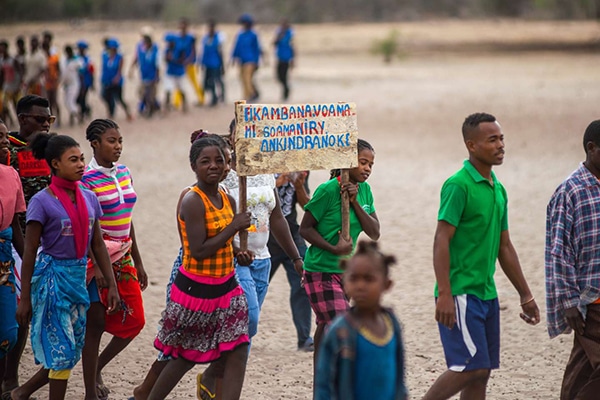
The Tahiry Honko project, in southwest Madagascar, helps to tackle climate breakdown and build community resilience by restoring and protecting mangrove forests. With a focus on empowering and enabling communities to sustainably manage such a valuable resource, this new approach to mangrove conservation brings sustainable economic benefits to local people.
Project objectives
- Monetise the carbon stored in the mangroves, and improve forestry management.
- Improve and diversify livelihoods of mangrove-dependent communities.
- Improve community health and empowerment.
How have people benefited?
The local population in the Bay of Assassins are the immediate beneficiaries. Funds from the sale of carbon credits will be distributed to ten villages, with a total population of approximately 4,000 residents in 895 households.
The expansion of the Tahiry Honko model will extend these benefits to many thousands more people. There are already two further Blue Forest sites in Madagascar, and work is starting on two new sites in Indonesia. There are mangrove forests across the tropics, so there is huge potential for the replication of this model. This will not only benefit the local communities, it will protect and conserve an important and diverse environment, one of the world’s most effective tools in the fight against climate change.
What examples are there of impact?
- The mangroves are protected, and their carbon is monetised. As part of the Tahiry Honko project, the local community, with support from Blue Ventures, has designed a management plan to conserve and restore over 1,200 hectares of mangrove in the Bay of Assassins, southwest Madagascar.
- Economic benefits by grounding conservation efforts in secure local management structures are enabling coastal communities to realise the full range of benefits well managed mangrove forests can offer. This helps to meet the basic needs of local communities and strengthens their resilience.
- Community health and gender benefits. Increasing access to health and family planning services improves general, maternal and child health outcomes, allows girls to delay their first pregnancy until after they have completed their education, and affords women more opportunities to become economically active.
What makes this project innovative?
This is the first carbon sequestration project in Madagascar based on a mangrove ecosystem. It is also the largest mangrove conservation carbon project in the world. It has contributed significantly to the science required to make community-led, rights-based blue carbon projects a reality, and once the project is set up it is sustainable by the local population and local stakeholders.
The model is intended to be taken to scale and can be easily replicated, so that the organisation can take the skills and experience gained and share them with other conservation partners around the world. This is already underway in other parts of Madagascar and in Indonesia.
It is vital that these efforts are magnified in order to save the remaining mangrove forests and unlock their potential as a sustainable resource for local communities and a global defence against climate change.
Innovation Award longlist
CBM UK – Humanitarian Hands-on Tool for disability inclusion
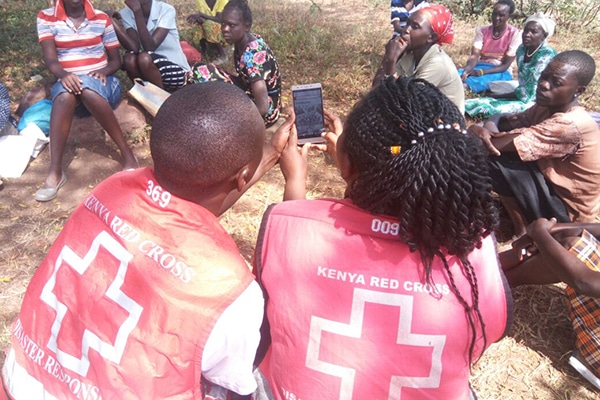
People with disabilities are disproportionally affected by disasters and routinely excluded from aid. Developed in partnership with people with disabilities, CBM’s Humanitarian Hands on Tool (HHoT) provides practical, accessible guidance for front line workers, equipping them to deliver inclusive humanitarian response.
Cherie Blair Foundation for Women – Road to Growth
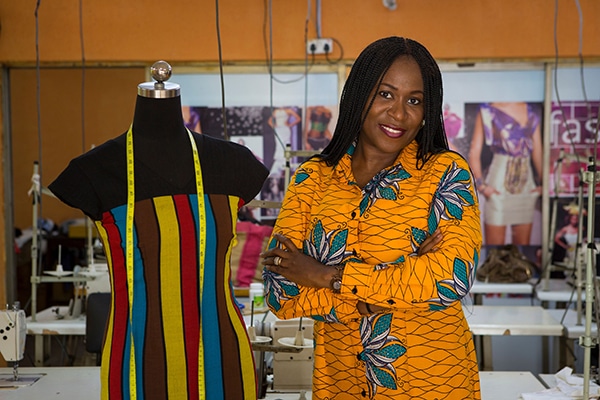
Road to Growth’s customised holistic support enables women to enhance their business growth. The first phase follows a blended learning curriculum, combining in-class training with a unique custom-built online learning tool and group learning. A smaller pool progress to the intensive phase, which includes coaching, workshops and networking events.
Development Media International – Impactful, cost-effective family planning messaging at scale
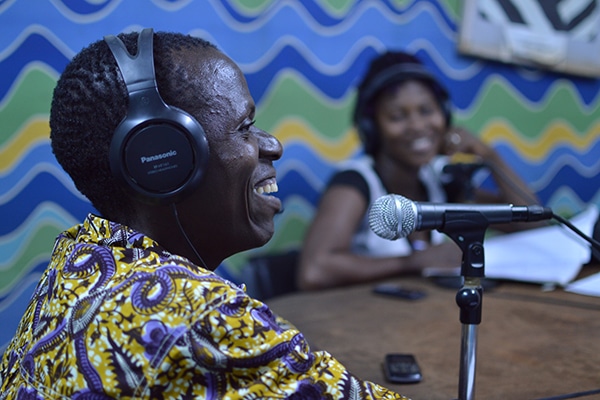
DMI conducted a 30-month randomised controlled trial (RCT) in Burkina Faso that showed their family planning radio campaign to be extremely effective at increasing modern contraceptive prevalence rates (mCPR). This highly cost-effective campaign has since been scaled to a national level, reaching vulnerable populations with locally informed, engaging messaging.
Islamic Relief UK – Virtue Reality
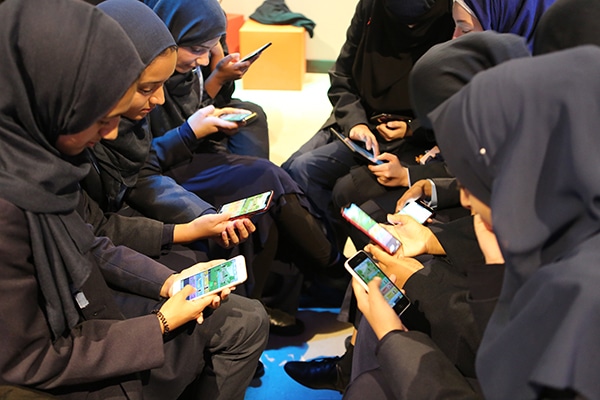
On 17 October 2019, Islamic Relief UK and Ultimatum Games launched Virtue Reality, a mobile game showing players how international aid works in a fun, accessible way. The game’s aid workers are Muslim, all carrying out good deeds, challenging the gaming industry’s mainstream narrative that Muslims are ‘baddies’.
Meningitis Research Foundation – The ASPIRE Project
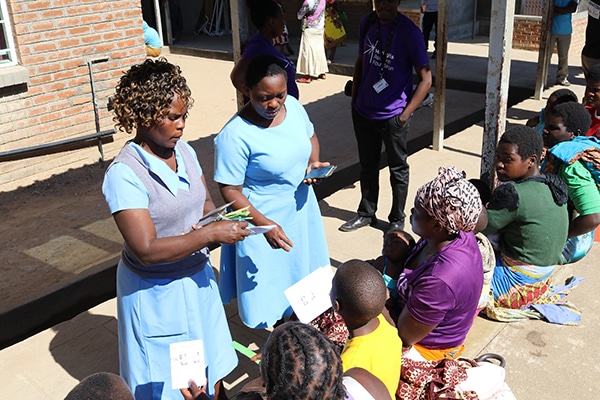
The ASPIRE project established and tested Emergency Triage, Assessment and Treatment (ETAT) systems in primary clinics using a mHealth app. Now children are seen in order of urgency, not first-come-first served. Thanks to evidence from the project, the Malawi Ministry of Health is expanding primary ETAT to 65% of districts.
Orbis UK – DFID Trachoma SAFE Implementation Programme
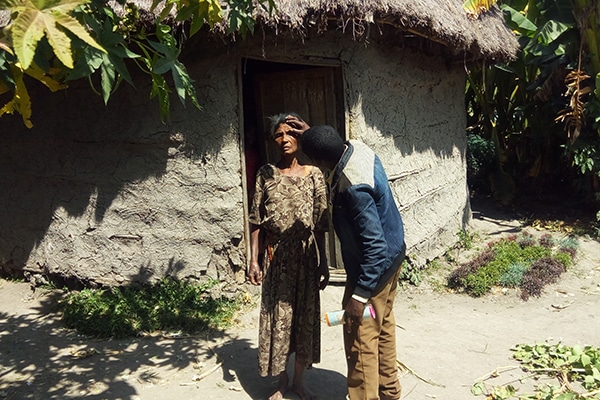
Blinding trachoma is a painful eye disease which is easily preventable with the right interventions. Ethiopia has the highest burden of the disease globally. Orbis’s trachoma project based in Sidama zone reached a total of 3,195,227 individuals, supporting the Ethiopian government to eliminate blinding trachoma as a public health problem.
Royal Academy of Engineering – The Africa Prize for Engineering Innovation
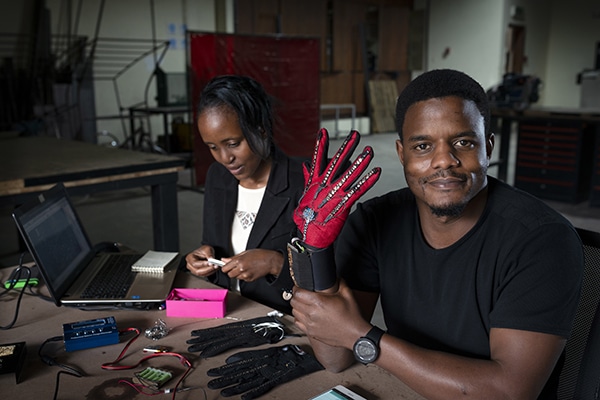
The Africa Prize, founded by the Royal Academy of Engineering, is Africa’s biggest prize dedicated to engineering innovation. It awards crucial commercialisation support to ambitious African innovators developing scalable engineering solutions to local challenges, demonstrating the importance of engineering as an enabler of improved quality of life and economic development.
Save the Children UK – Paediatric Blast Injury Field Manual
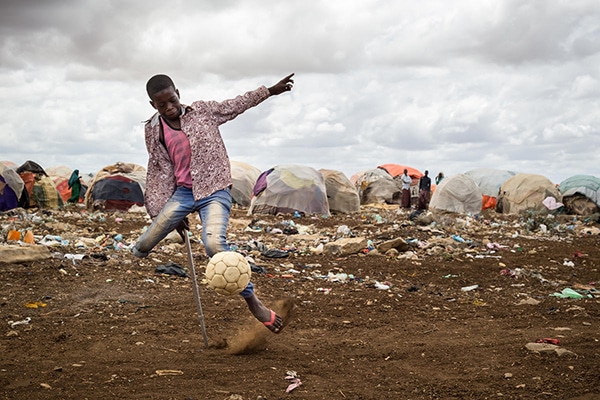
The Paediatric Blast Injury Field Manual, designed for medics in warzones who often lack specialist training, is the first comprehensive guide to injuries suffered by children from weapons like airstrikes, artillery and landmines. Instructions cover situations ranging from resuscitation on the battlefield and saving limbs, to rehabilitation and psychological care.
Street Child – Family Business for Education After Disaster
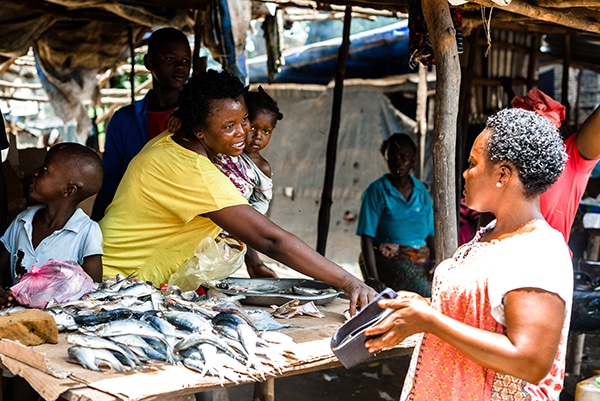
The economic impact of disaster leaves families unable to afford the costs of their children’s education, perpetuating disaster. Street Child’s Family Business for Education scheme supports families to re-start businesses and offers 121 counselling for children, family mediation and scholastic materials to sustainably facilitate immediate access to education.
Tdh UK (Terre des hommes) – IeDA
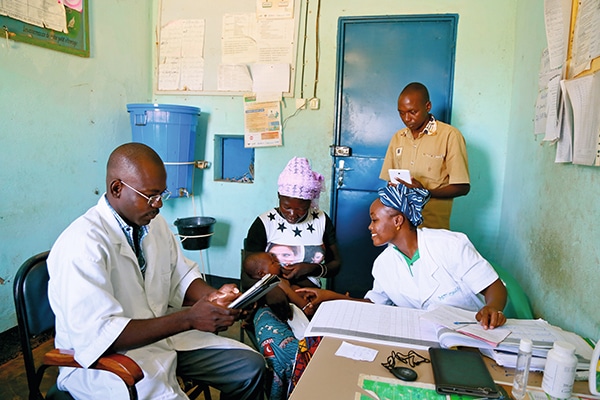
IeDA is a digital healthcare revolution improving outcomes for sick children five years and younger.
Launched by Terre des hommes (Tdh) in 2014 as a pilot project in 39 centres in the Tougan district in Burkina Faso, Tdh now implements IeDA in over 720 clinics in the North and Boucle du Mouhoun, covering 40 percent of Burkina Faso’s entire healthcare system. Further expansions in 2019/20 will see over 1130 health centres throughout 23 districts in Burkina Faso using IeDA. The use of IeDA spread to Mali in 2017.
Tdh UK (Terre des hommes) – SIMESON
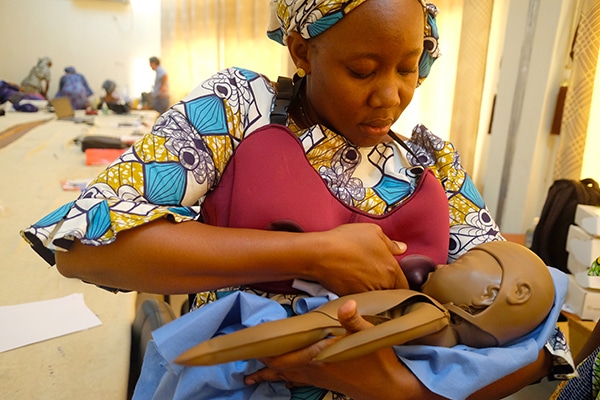
SIMESON, Simulation of Essential Skills in Obstetrics and Neonatal Care, makes sustainable improvements to the quality of care provided at birth by training midwifes and health workers in rural areas in Africa and Asia, using anatomical models and mannequins, providing individualised on-the-job training, enhancing proficiencies and saving lives.
The British Asian Trust – Quality Education India DIB
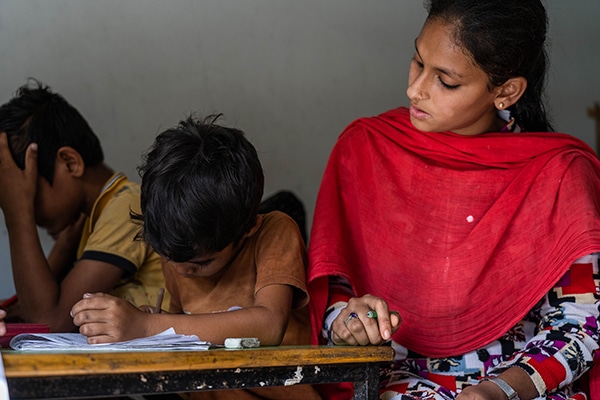
The Quality Education India Development Impact Bond is a pioneering initiative with the potential to transform the way we fund and deliver development programmes. The British Asian Trust convened 20 partners from across the private, public and third sectors to improve learning outcomes for 200,000 primary school children in India.
The Fred Hollows Foundation UK – Pacific Trachoma Initiative (PTI)

Their goal was to eliminate blinding trachoma as a public health problem in four Pacific Island Countries (PICs): Fiji, Solomon Islands, Vanuatu and Kiribati. Utilising innovative partnerships, involving key local and global stakeholders, the approach resulted in a pragmatic and evidence-driven intervention for the Pacific.
The Lady Fatemah Charitable Trust – Mothernomics

Holistic, scalable and low cost, Mothernomics is a high impact programme of support with the widowed mothers community in Iraq. Skills training for entrepreneurial activities support their whole person growth and transform their emotional, physical and spiritual well-being. Mothernomics is helping women reintegrate and claim back their role in society.
Transaid – MAMaZ Against Malaria programme
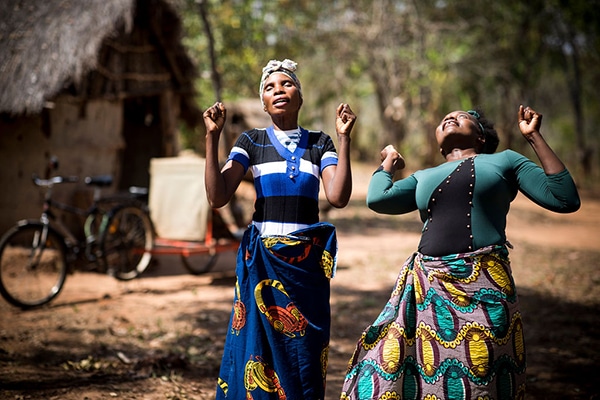
MAMaZ Against Malaria developed innovative approaches to tackling severe malaria in children under 6, in rural Zambia.
The programme did this by strengthening health supply chains and improving access to emergency transport and by utilising a ‘whole community engagement’ approach. The project achieved a 96% reduction in severe malaria deaths.
WaterAid – Innovation through integration: hygiene integration into routine immunisation programme
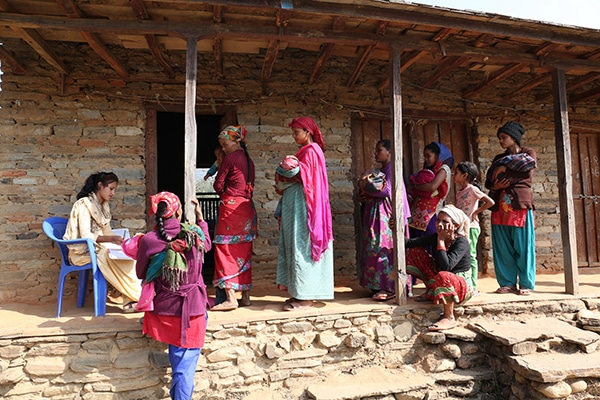
This project revolutionised childhood immunisation programs using WaterAid’s innovative behaviour-centred design approach to integrate hygiene behaviour interventions into routine immunisation programme. The intervention addressed multiple pathways to disease transmission achieving 5 key hygiene behaviours, increasing immunisation coverage, strengthening the capacity of frontline workers and demonstrating the feasibility of integration.

